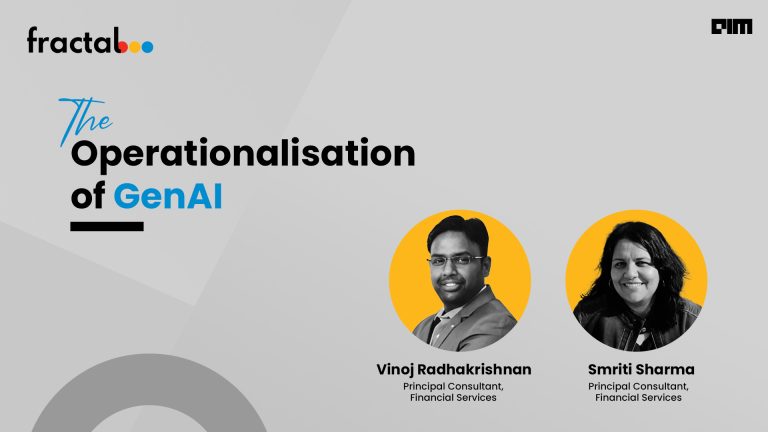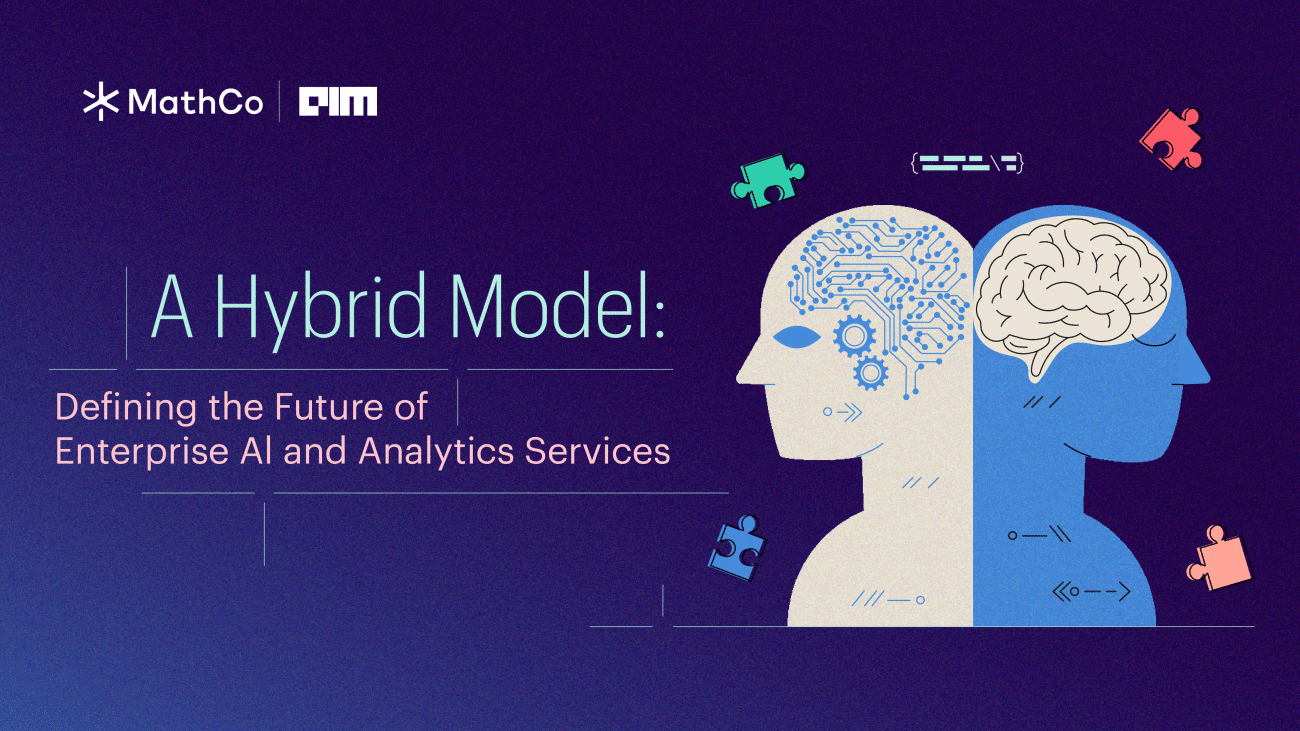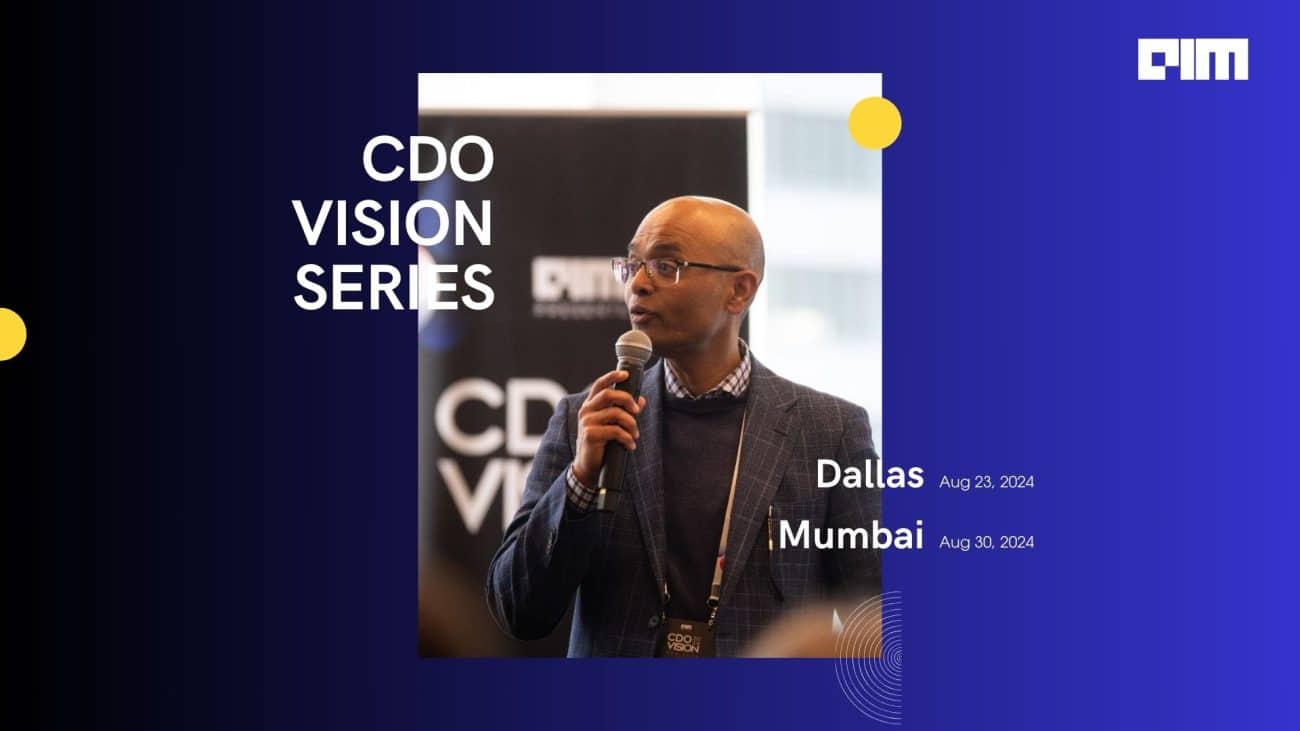The role of chief financial officers (CFOs) has significantly transformed over the years. And now, with AI in the picture, the role is evolving massively. Traditionally viewed as the gatekeepers of accounting and bookkeeping, CFOs are now emerging as strategic catalysts, leveraging data and technology to drive organisational growth and innovation.
Shipra Sooden, Client Partner, Finance Analytics at Fractal, provides valuable insights into this shift and highlights the pivotal role CFOs play in today’s AI-driven world.
The Evolving Role of CFOs
Sooden emphasises that CFOs are no longer confined to traditional financial roles. “Earlier, their role was mainly restricted to accounting and bookkeeping. Now, it’s all about data. CFOs are the data custodians, sitting on a wealth of information that can be leveraged to drive business growth,” she explained.
This shift in focus from mere number-crunching to strategic decision-making positions CFOs uniquely within organisations. They have a comprehensive view of how various decisions impact the overall business performance, enabling them to engage in strategic conversations with other leaders.
When asked about the balance CFOs must strike between financial prudence and fostering innovation, Sooden noted, “Financial prudence ensures the stability and sustainability of the organisation. This involves meticulous budgeting, cost management, and risk assessment. Innovation, on the other hand, is about strategically allocating resources to research and development, embracing new technologies, and promoting a culture of data-driven decision-making.
CFOs are uniquely positioned to integrate these two priorities by implementing a dynamic financial strategy that allows for controlled experimentation and calculated risk-taking. With optimal capital utilisation, CFOs can set aside funds for innovative projects, measure their potential returns, and continually monitor performance.”
CFOs can allocate the right resources and funds needed to train and build a culture of innovation.
Sooden shared an example from a CPG organisation where the CFO played a critical role in managing profitability and improving margins. “We collaborated with multiple CPG organisations to address the challenge of limited visibility into profitability. Specifically, we focused on enhancing margin performance by identifying key drivers and opportunities for improvement,” she said.
The CFO-led initiative involved running multiple MVPs (minimum viable products) across different markets to bring all information together and create a global version of P&L (profit and loss). This allowed them to identify the most profitable customer/product segments and establish strategic partnerships.
Measuring Success
The transition from traditional finance roles to strategic ones is not without challenges. According to Sooden, the biggest hurdle is often resistance from within the organisation. “Users often resist adopting new systems and are very comfortable with Excel reports. This resistance stems from a lack of transparency into the underlying data and processes, creating a ‘black box’ effect.”
This resistance can obstruct the adoption of innovative practices and new technologies. Additionally, selecting the right technology and ensuring proper training are crucial steps in overcoming these challenges.
Measuring the success of investment initiatives and strategic projects is essential for CFOs. Sooden highlights its importance: “Measuring value delivered is critical. ROI must encompass both economic and people impact. For instance, productivity gains can be quantified into dollar value. Faster and more accurate decision-making drives financial benefits,” she explained.
She added that during the initial stages of a project, a detailed process mapping is conducted to understand the current processes and identify areas for improvement. “We collaborate with clients to understand existing processes, related challenges, and desired outcomes. Then this is converted into measurable value, aligning with business to deliver tangible results,” Sooden said.
CFOs are Transforming into Chief Growth Officers
Driven by rapid technological advancements, Sooden sees the role of CFOs evolve further in the future. “With AI evolving daily, CFOs must stay updated with industry trends and market developments. This is no longer just about finance; it’s about steering the business towards a data-driven future,” she advised.
To stay relevant, CFOs must embrace continuous learning and adapt to changing dynamics. Sooden underscored the importance of understanding the broader implications of technology on business operations.
“The role of CFOs will increasingly involve leveraging AI and other advanced technologies to drive strategic decisions. This necessitates a shift from traditional roles to becoming strategic leaders within the organisation,” she concluded.
By leveraging data, promoting a culture of innovation, and staying updated with technological advancements, CFOs are uniquely positioned to lead their organisations into the future. They will eventually be known as ‘chief growth officers.’
As Sooden aptly puts it, “The shift from accounting and bookkeeping to strategic leadership is not just a change in role, but a change in mindset, enabling CFOs to drive meaningful business growth in the era of AI.”


















